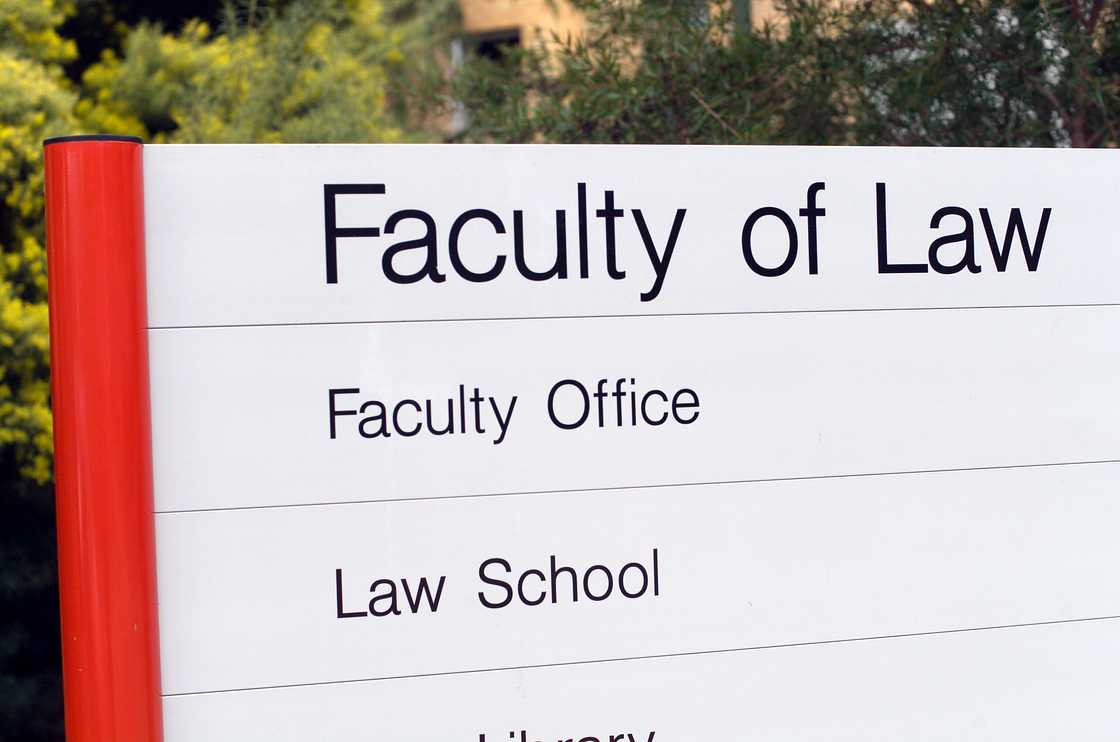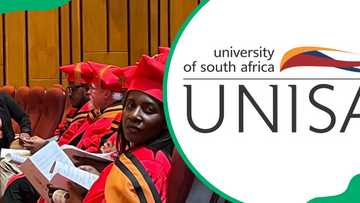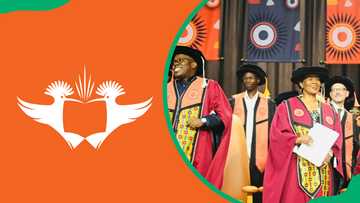How many years to study law in South Africa: A complete guide
Law is one of the world's oldest professions but remains a competitive career to pursue. Before you get in, you need to understand how many years to study law in South Africa. It usually takes several years, combining academic and practical training, before gaining admission as an advocate to the High Court.

Source: Getty Images
TABLE OF CONTENTS
Pursuing a legal career in South Africa can be rewarding, both professionally and personally. Before you get to enjoy the perks, you must commit several years to studying law at a recognized institution.
How many years to study law in South Africa
The number of years you take in law school in South Africa depends on whether you are doing it part-time or full-time. The timeline for undergraduate and postgraduate degrees may vary with the law school.
Undergraduate law degree duration
A Bachelor of Laws (LLB) degree is the minimum academic qualification required to practice law in South Africa. It typically takes four years to complete for students studying the course on a full-time basis. Those who choose to study part-time due to other commitments can take up to six years to complete.
Postgraduate law degree duration
After obtaining an LLB, students have the option to specialize further and pursue a master's degree, a postgraduate degree, or a dissertation.
- A postgraduate diploma in Law (PGDiplaw): One year full-time or two years part-time
- Master of Law (LLM or MPhil): 1 year full-time or 2 years part-time
- PhD in Law by Dissertation or LLM by Dissertation: This is a research-based program that usually takes three to five years, depending on the nature of your research.

Source: Getty Images
How many years do you study to become a lawyer?
The duration of study for a lawyer is a total of approximately seven to nine years before you can start practicing in SA. Here is an overview of the process;
- Complete your LLB degree at an accredited institution, which takes 4-6 years.
- Practical legal training: You can do two years of practical training under a practising attorney (Articles of Clerkship) or complete one year of full-time practical legal training at a Practical Legal Training school followed by 1 year of articles.
- Pass the board exams set by the Law Society of South Africa (LSSA)
- Complete one year of compulsory community service at a designated law clinic or organization. This is to ensure you gain practical experience and serve the community.
- Apply to the High Court for admission as an attorney.
Requirements to study law in South Africa
The necessary entry requirements for studying law in South Africa vary with the institution. Typically, you need to have the following to gain entry at top universities in the country;
- A National Senior Certificate (NSC) with degree admission
- High school subjects for law, including English Home Language level 5 or English First Additional Language level 5/6; Mathematical Literacy level 5/6 or Mathematics level 3/4; Life Orientation level 4
- Minimum composite Academic Point Score (APS) of 32 and above

Source: Getty Images
Which university is best for law in South Africa?
Several universities in South Africa have gained a great reputation for offering high-quality education and producing successful legal professionals. Below are the top 10 best institutions for studying law in the country as of 2024, according to Times Higher Education World University Rankings;
- University of Pretoria
- University of Cape Town
- Stellenbosch University
- University of the Witwatersrand
- University of Johannesburg
- North-West University
- University of the Western Cape
- University of the Free State
- University of KwaZulu-Natal
- University of South Africa

Source: Getty Images
Which law is best to study?
Choosing the best law specialization depends on your interests and career goals. Each area offers unique opportunities and challenges. Some of the highly regarded specializations in SA include;
- Criminal Law: It focuses on laws related to crime and punishment. It is a great choice if you are interested in working in the criminal justice system.
- Corporate Law: It deals with the legal aspects of business and commerce. Ideal for those who want to work in the corporate sector or start their own business.
- Environmental Law: It focuses on laws that protect the environment. Perfect for those passionate about environmental conservation and sustainability.
- Human Rights Law: It focuses on the protection and promotion of human rights. Suitable for those who want to work with NGOs, government agencies, or international organizations.
- Intellectual Property Law: It deals with the legal rights to inventions, designs, and artistic works. Great for those interested in the creative industries or technology sector.
- Family Law: It focuses on legal issues related to family matters such as divorce, child custody, and adoption.
- Labour Law: It focuses on the rights and duties of workers and employers. Suitable for those interested in workplace rights and employment law.
- Constitutional Law: It focuses on the interpretation and application of the Constitution. Perfect for those interested in public law and government.

Source: Getty Images
FAQs
The path to becoming a practising lawyer in South Africa extends beyond academic study. The profession is also highly competitive, but the specialization you choose during your years of study should ensure growth.
How long is law school in South Africa?
An LLB degree in South Africa takes around four to six years, depending on whether you are doing it full-time or part-time. A postgraduate law qualification can take one to two years to complete. You will also need to complete two years of practical legal training (PLT) and then pass the board exams from the LSSA.
Can you study law for 2 years?
You can study law for two years if you already have a degree in another field. UCT offers a 2-year graduate combined stream LLB, which could include Bcom Law & LLB, BA Law & LLB, or BSocSci & LLB. Wits University also provides a 2-year LLB degree with a BA in Law or BCom Law.

Source: Getty Images
Now that you know how many years to study law in South Africa, you can plan your career. Pursuing law can be rigorous but also extremely rewarding.
READ ALSO: What is the SASSA WhatsApp number? Contact SASSA with ease
Briefly.co.za shared how you can contact SASSA using WhatsApp. The number can be used to apply for grants, check application statusses, and access other services offered by the social security agency.
The SASSA WhatsApp number is one of the most convenient contact methods introduced. Check the article for more on how to access the service.
Source: Briefly News






